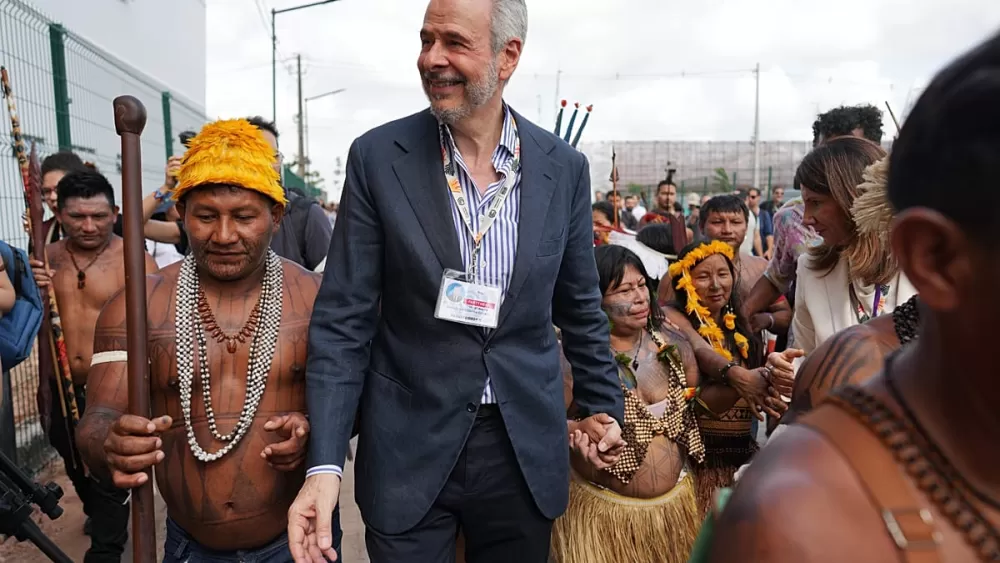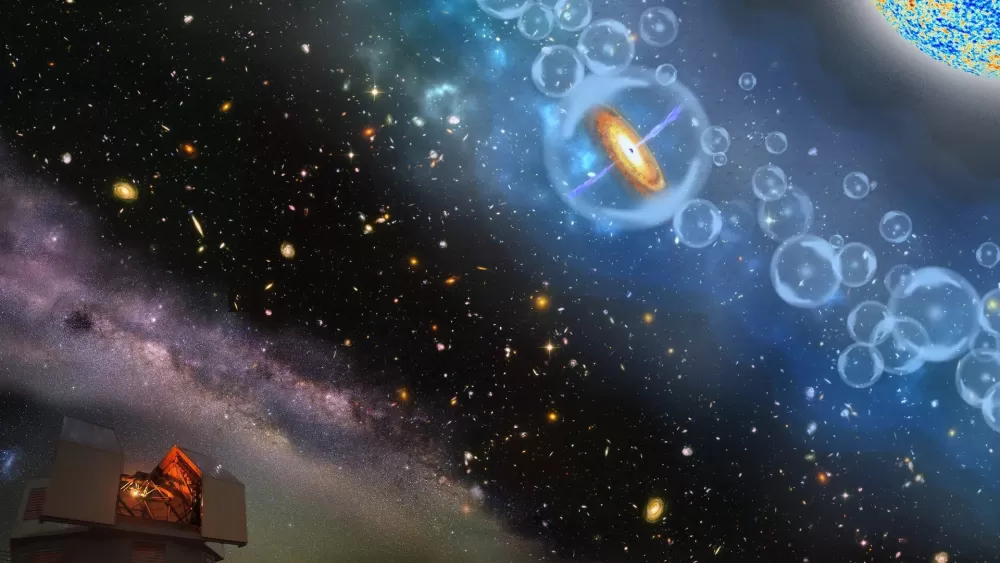The Unyielding Echo: Indigenous Voices Demand a Seat at Humanity's Climate Table
Share- Nishadil
- November 15, 2025
- 0 Comments
- 2 minutes read
- 33 Views

Indigenous Voices Take a Stand at COP30, Demanding Their Rightful Place in Climate Talks
At COP30, Indigenous protesters have taken a bold, physical stand, blocking an entrance to insist on their full inclusion in critical climate discussions, highlighting a deep-seated frustration with their marginalization in global negotiations. Their message is clear: true climate solutions require their unique insights and participation.
In a world grappling with the escalating climate crisis, there's a powerful, resonant truth that often gets overlooked, perhaps even deliberately sidelined. For once, consider this: at the recent COP30 summit, it wasn't just another protest. No, what unfolded at the entrance was a deeply symbolic, undeniably human statement, a physical manifestation of frustration as Indigenous protesters bravely blocked access, their message clear, their resolve unwavering: they demand, and indeed deserve, a seat at the climate discussion table.
You see, it's not merely about being present. It’s about a fundamental right to participate, to contribute to decisions that directly, often brutally, impact their ancestral lands and their very way of life. These are the communities, after all, who have lived in harmony with nature for millennia, their traditional knowledge a vast, often untapped, reservoir of wisdom about ecological balance. And yet, so often, their voices are treated as mere footnotes in the grand, global narrative of climate action.
Think about the sheer audacity, the raw courage it takes to stand, united, against the backdrop of an international conference, to disrupt the flow, to force the world to acknowledge a painful reality. These are the people whose lands are disproportionately affected by deforestation, by mining, by the rising tides and extreme weather events—consequences of a global industrial appetite they largely did not create. So, for them, climate talks aren't abstract policy debates; they are discussions about survival, about home, about the future of their children.
It really makes you wonder, doesn't it? If the goal of COP meetings is to find comprehensive, effective solutions to climate change, how can we possibly hope to achieve that without the insights of those who live closest to the land, who observe its subtle shifts, who understand its delicate ecosystems in ways modern science is only now beginning to fully appreciate? Their exclusion is, frankly, a glaring omission, a self-defeating strategy that cripples the very effectiveness of these global forums.
The blockade, then, was more than just a temporary inconvenience; it was a potent symbol, a desperate plea for recognition. It was a reminder that climate justice isn't just about reducing emissions; it's about equity, about empowering the marginalized, about respecting ancient wisdom. Their demand for participation isn't a radical notion; it's a foundational requirement for any genuinely holistic and just approach to healing our planet. And honestly, for once, we should truly listen.
- News
- Politics
- UnitedKingdom
- PoliticsNews
- Ukraine
- France
- Russia
- Ireland
- Iceland
- Denmark
- Sweden
- Germany
- Switzerland
- Belgium
- Italy
- Spain
- Poland
- GlobalWarming
- Romania
- Greece
- Slovenia
- Protest
- Montenegro
- BosniaAndHerzegovina
- Cyprus
- Albania
- Malta
- Macedonia
- Moldova
- SanMarino
- Netherland
- Hungary
- Austria
- Norway
- Portugal
- Serbia
- Bulgaria
- CzechRepublic
- Latvia
- Lithuania
- Slovakia
- Andorra
- Kosovo
- Liechtenstein
- Finland
- Monaco
- Vatican
- Belarus
- Estonia
- Luxembourg
- Croatia
- IndigenousRights
- TraditionalKnowledge
- Cop30
- EnvironmentalActivism
- ClimateJustice
- ClimateTalks
Disclaimer: This article was generated in part using artificial intelligence and may contain errors or omissions. The content is provided for informational purposes only and does not constitute professional advice. We makes no representations or warranties regarding its accuracy, completeness, or reliability. Readers are advised to verify the information independently before relying on







